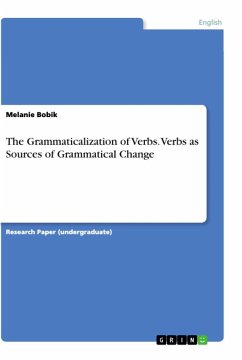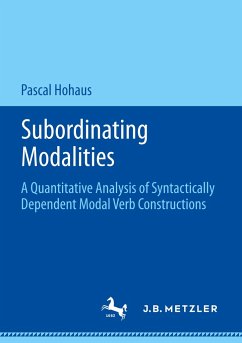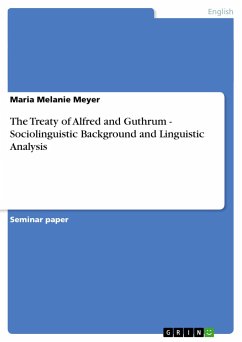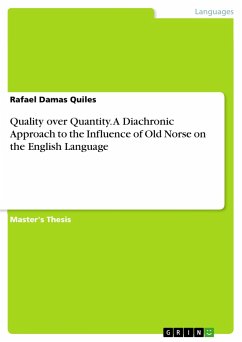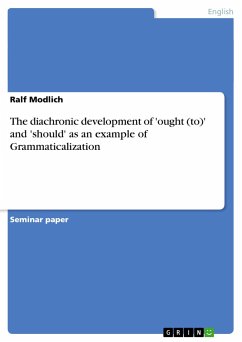
The diachronic development of 'ought (to)' and 'should' as an example of Grammaticalization
Versandkostenfrei!
Versandfertig in 1-2 Wochen
17,95 €
inkl. MwSt.

PAYBACK Punkte
0 °P sammeln!
Seminar paper from the year 2009 in the subject English Language and Literature Studies - Linguistics, grade: 1,0, University of Potsdam (Institut für Anglistik / Amerikanistik), course: Grammaticalization, language: English, abstract: This paper aims at observing the processes and mechanisms of grammaticalization, taking as an example the development of ought (to) and should from earlier stages of the English language up to the present day. In the very beginning, terminological questions will be discussed. Therefore, the first step will be to concentrate on the term 'grammar', before the ter...
Seminar paper from the year 2009 in the subject English Language and Literature Studies - Linguistics, grade: 1,0, University of Potsdam (Institut für Anglistik / Amerikanistik), course: Grammaticalization, language: English, abstract: This paper aims at observing the processes and mechanisms of grammaticalization, taking as an example the development of ought (to) and should from earlier stages of the English language up to the present day. In the very beginning, terminological questions will be discussed. Therefore, the first step will be to concentrate on the term 'grammar', before the terms 'modality', 'mood', and 'modal system' are analyzed. What will follow is a look at attempts to categorize the constructions under examination, since the allocation of ought (to) is disputed and somewhat fuzzy. Although the next step will mean not to proceed completely chronologically, it is important to describe how should and ought (to) work in PDE to better understand their development. After that, the semantic and morphosyntactic development of both constructions throughout the history of the English language will be described. Taking the observed changes as a basis, the development of the forms will finally be related to grammaticalization, where the principles proposed by Lehmann (1985) and Hopper (1991) will play a major role.



